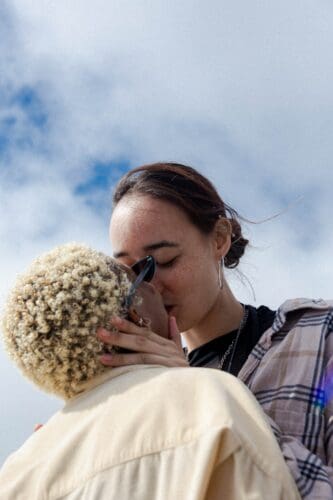Over the past six months, we’ve been helping the Couples and Sexual Health Research Laboratory at Dalhousie University find people to participate in their Desire Study. Pleasure, sex, sexual health, and fulfilling relationships are themes that we’ve always cared about, and we know that communication is a powerful tool to support all these areas, so supporting this study makes a whole lot of sense to us.
Libido levels vary, for so many different reasons. Stress, hormones, anxiety, depression, sleep deprivation, grief…there are numerous things that can affect our desire to have sex! Most people, who have a sexual history, can identify certain chapters of their life where their libido changed—sometimes gradually, other times suddenly. So whatever you’re feeling, you are not alone.

Like so many things in nature, desire is something that comes and goes. It’s as normal to feel really horny as it is to feel like sex is the absolute last thing you want to do. But if you’re experiencing the latter, and it’s affecting how you feel about yourself, and impacting your relationship, you may be eligible to participate in this paid study (and it might really help, because talking about these issues head on is always a great first step!).

Desire Study Seeks Couples For Paid Study
Do you experience LOW SEXUAL DESIRE?
Seeking couples with one partner experiencing low sexual desire for paid, online research study.
To be eligible, both partners must agree and be:
(a) 18 years or older
(b) Fluent in English or French
(c) In a relationship for at least one year, with a minimum of four in-person contacts/week in the last month
(d) Reside in Canada or the United States
* Other criteria may apply.
**This study aims to be inclusive to individuals of all gender identities, bodies, and orientations.
If eligible, both members of the couple will complete brief online daily surveys and 3 longer surveys.
Compensation provided.
To participate, please fill out this survey, or contact them by email at desire@dal.ca.
For more information, go here.
This study has been approved by the Dalhousie Research Ethics Board (REB #2020-5207).


 Follow Us On Instagram
Follow Us On Instagram

 EXCLUSIVE TICKET GIVEAWAY!
EXCLUSIVE TICKET GIVEAWAY! This Thursd
This Thursd @insideoutfestival jus
@insideoutfestival jus